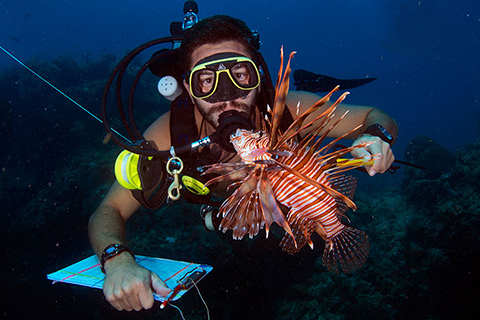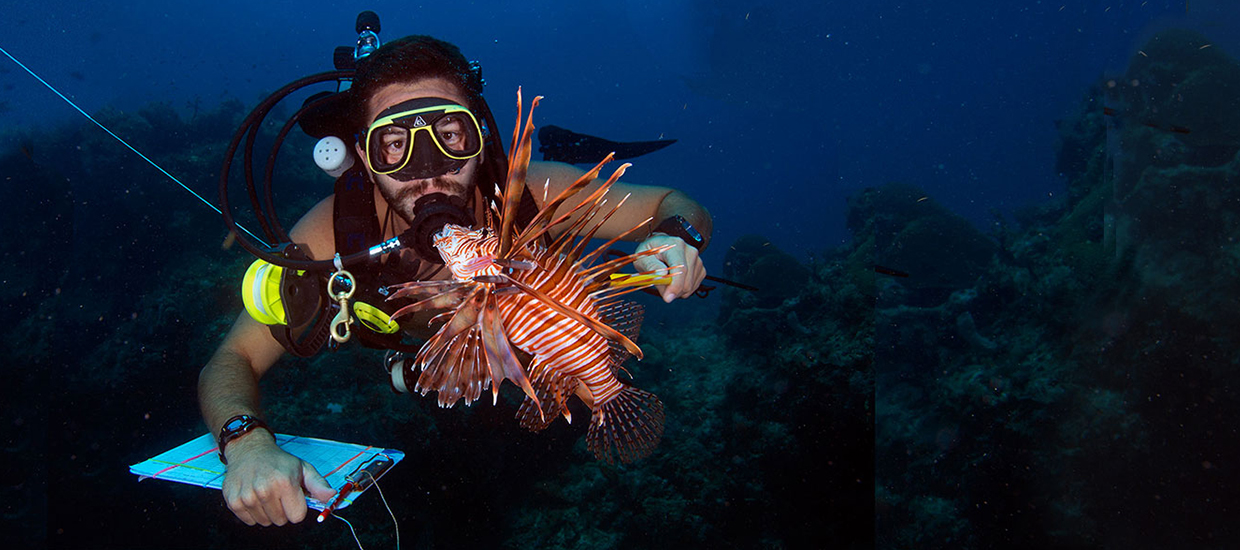Exploration Science is the applied study and practice of field research using diverse methods, technologies, and approaches to drive question-based scientific endeavors. It combines scientific research theory and field skills with an outreach and educational component for experimental and virtual expeditions bringing discovery to a wider audience.
The Exploration Science MPS track immerses students in citizen science project design, exploration technology applications, and field-based skills training, while offering essential background information that acknowledges the cultural and ethical implications of exploration. Students will be able to tailor their degree to best fit their interests and will be prepared to lead professional exploration initiatives and expeditions in a variety of environments. This track is being offered at the Rosenstiel School in partnership with the University of Miami’s Abess Center for Ecosystem Science and Policy.
Prerequisites
Bachelor’s degree in any field
Course topics:
Scientific research diving, motorboat operations, citizen science, exploration technology and media, Geographic Information Systems (GIS), field techniques
Example job titles:
- Naturalist/Expedition Diver (Lindblad Expeditions/National Geographic)
- Chief of Dive Staff
- Environmental Scientist
- Communications & Marketing Specialist (OceanX)
- Marketing and Development Coordinator (PADI)
- Diversity, Equity and Inclusion Coordinator (Inspiring Girls Expeditions, Alaska)






